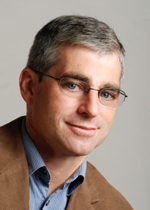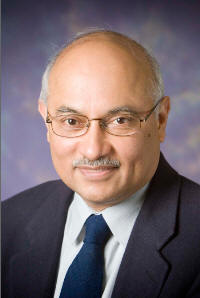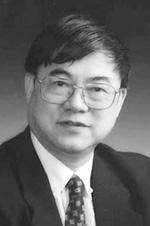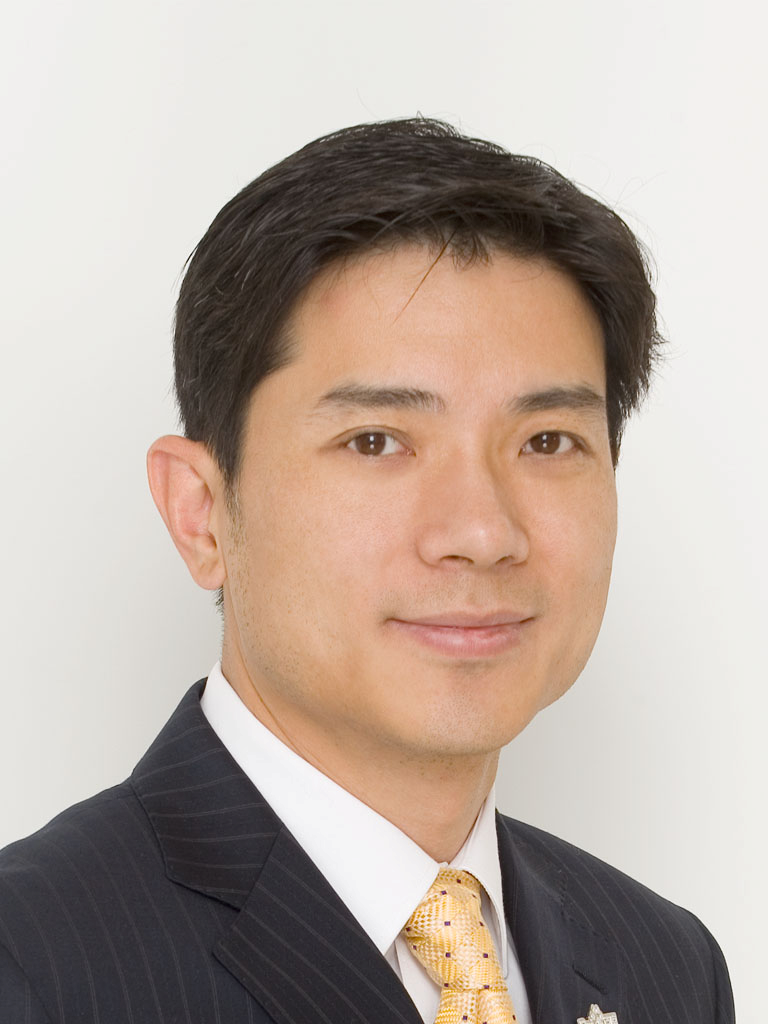|
|
Keynote Speakers

|
David Culler
UC Berkeley
物联网——走向可持续性发展
The Internet of Every Thing - steps toward sustainability |
|
Abstract:
Today's networks allow us to connect almost everybody, but soon we will have the ability to connect almost every thing of value. This new tier of the internet will connect directly to the physical world, allowing a real-world web of physical information to stream into and out of the information processing enterprise, driving decision making and action.
Broad research efforts over the past decade have created the technological foundations of this tier, including the integration of sensing, computing, and communication into compact, low-power devices, the development of robust, communication-centric embedded operating systems, and the formulation of reliable, energy-efficient routing protocols.
Recently, it has become truely the front-tier of the Internet with 6LoWPAN/ROLL carrying IPv6 in compact form. We now see its emergence as the key to the intelligence of smart grids, green buildings, and sustainable industrial processes. Low power WSNs contribute both technology and key lessons that can be applied toward sustainability more broadly.
Biography:
David Culler is a Professor and Chair of Computer Science, Associate Chair of Electrical Engineering and Computer Sciences at the University of California, Berkeley and Faculty Directory of i4energy. Professor Culler received his B.A. from U.C. Berkeley in 1980, and M.S. and Ph.D. from MIT in 1985 and 1989. He has been on the faculty at Berkeley since 1989, where he holds the Howard Friesen Chair. He is a member of the National Academy of Engineering, an ACM Fellow, an IEEE Fellow and was selected for ACMs Sigmod Outstanding Achievement Award, Scientific American's 'Top 50 Researchers', and Technology Review's '10 Technologies that Will Change the World'. He received the NSF Presidential Young Investigators award in 1990 and the NSF Presidential Faculty Fellowship in 1992. He is co-PI on the NSF CyberPhysical Systems LoCal and ActionWebs projects, and was the Principal Investigator of the DARPA Network Embedded Systems Technology project that created the open platform for wireless sensor networks based on TinyOS, co-founder and CTO of Arch Rock Corporation, and the founding Director of Intel Research, Berkeley. He has done seminal work on complex energy systems, networks of small, embedded wireless devices, planetary-scale internet services, parallel computer architecture, parallel programming languages, and high performance communication, and including TinyOS, PlanetLab, Networks of Workstations (NOW), and Active Messages. He has served on Technical Advisory Boards for several companies, including People Power, Inktomi, ExpertCity (now CITRIX on-line), and DoCoMo USA
|

|
P.R.Kumar
University of Illinois, Urbana-Champaign
Cyberphysical系统的若干关键问题
Challenges in Cyberphysical Systems |
|
Abstract:
We present a historical account of paths leading to the present interest in cyberphysical systems. We present an account of several foundational research topics that underlie this area. These include issues in data fusion, real-time communication, clock synchronization, middleware, hybrid systems and proofs of correctness.
Biography:
P. R. Kumar obtained his B. Tech. degree in Electrical Engineering (Electronics) from I.I.T. Madras in 1973, and the M.S. and D.Sc. degrees in Systems Science and Mathematics from Washington University, St. Louis, in 1975 and 1977, respectively. From 1977-84 he was a faculty member in the Department of Mathematics at the University of Maryland Baltimore County. From 1985-2011 he was a faculty member in the Department of Electrical and Computer Engineering and the Coordinated Science Laboratory at the University of Illinois. Currently he is at Texas A&M University, where he holds the College of Engineering Chair in Computer Engineering.
Kumar has worked on problems in game theory, adaptive control, stochastic systems, simulated annealing, neural networks, machine learning, queueing networks, manufacturing systems, scheduling, wafer fabrication plants and information theory. His current research interests are in wireless networks, sensor networks, and networked embedded control systems.
His research is currently focused on wireless networks, sensor networks, cyberphysical systems, and the convergence of control, communication and computation.
Kumar is a member of the National Academy of Engineering of the USA, as well as the Academy of Sciences of the Developing World. He was awarded an honorary doctorate by the Swiss Federal Institute of Technology (Eidgenossische Technische Hochschule) in Zurich. He received the IEEE Field Award for Control Systems, the Donald P. Eckman Award of the American Automatic Control Council, and the Fred W. Ellersick Prize of the IEEE Communications Society. He is a Fellow of IEEE. He is a Guest Chair Professor and Leader of the Guest Chair Professor Group on Wireless Communication and Networking at Tsinghua University, Beijing, China. He is also an Honorary Professor at IIT Hyderabad. He was awarded the Daniel C. Drucker Eminent Faculty Award from the College of Engineering at the University of Illinois, and the Alumni Achievement Award from Washington University in St. Louis.
|

|
Roger Wattenhofer
ETH Zurich
物理算法
Physical Algorithms |
|
Abstract:
The area of physical algorithms deals with networked systems of active agents. These agents have access to limited information for varying reasons; examples are communication constraints, evolving topologies, various types of faults and dynamics. The networked systems we envision include traditional computer networks such as sensor networks, but also more generally networked systems, such as social networks, highly dynamic and mobile networks, or even networks of entities such as cars or ants. In other words, the physical world is becoming algorithmic, and we need the means to understand it!
Biography:
Roger Wattenhofer is a full professor at the Information Technology and Electrical Engineering Department, ETH Zurich, Switzerland. He received his doctorate in Computer Science in 1998 from ETH Zurich. From 1999 to 2001 he was in the USA, first at Brown University in Providence, RI, then at Microsoft Research in Redmond, WA. He then returned to ETH Zurich, originally as an assistant professor at the Computer Science Department. Roger Wattenhofer's research interests are a variety of algorithmic and systems aspects in computer science and information technology, currently in particular wireless networks, multi-core systems, peer-to-peer computing, and social networking. He publishes in different communities: distributed computing (e.g., PODC, SPAA, DISC), networking (e.g., MobiCom, MobiHoc, SenSys, IPSN, HotNets), or theory (e.g., STOC, FOCS, SODA, ICALP).
|

|
邬贺铨
中国工程院
物联网的设计思考
Some Thoughts on the Design of "Internet of Things" |
Abstract:
In this talk, I will give some of my thoughts on the design of "Internet of Things" (IoT) in the following three aspects. First, I will explain the communication techniques and protcols among the IoT nodes and their underlying network; Second, I will discuss some IoT nodes layout design aspects needing attention in the sense layer of IoT; Finally, I will bring out some important issues on the IoT data mining and intelligence decision.
Biography:
Prof. Wu Hequan graduated from Wuhan Post and Telecommunications Institute in 1964. He has worked in the China Academy of Post and Telecommunications of the Ministry of Post and Telecommunications since 1964. He was Vice-President and Chief Engineer of China Academy of Telecommunications Technology from 1997 to 2003. He has conducted research and development in optical fiber transmission systems and broadband networks. He takes charge to manage R&D projects on NGI and 3G as well as LTE since 2002. He was elected academician of Chinese Academy of Engineering (CAE) in 1999 and Vice-President of CAE from June 2002 to June 2010. He is currently Vice-Director of the Advisory Committee for State Informatization of China. He is also Vice-Director of an Executive Council of China Institute of Communications (CIC) and Chinese Institute of Electronics (CIE) respectively. Prof. Wu has been appointed technical director of the new generation broadband wireless mobile communications network, one of the 16 major projects in the Outline of the National Program for Long- and Medium-term Scientific and Technological Development (2006~2020) of China. He is Director of Experts Committee of China’s Next Generation Internet (CNGI) project, and is head of expert group of three network convergence of the State Council. Prof. Wu is director of standardization group of IOT. He is a senior member of IEEE. |

|
Robin Li
Baidu's co-founder, Chairman and CEO
百度框计算
Baidu's Box Computing |
Biography:
Robin Li: Baidu's co-founder, Chairman and CEO |
|